Growth & Customers
Everything we know about… starting a freelance business
Get expert tips from two freelancers navigating the world of self-employment, covering finding work, getting paid and more.
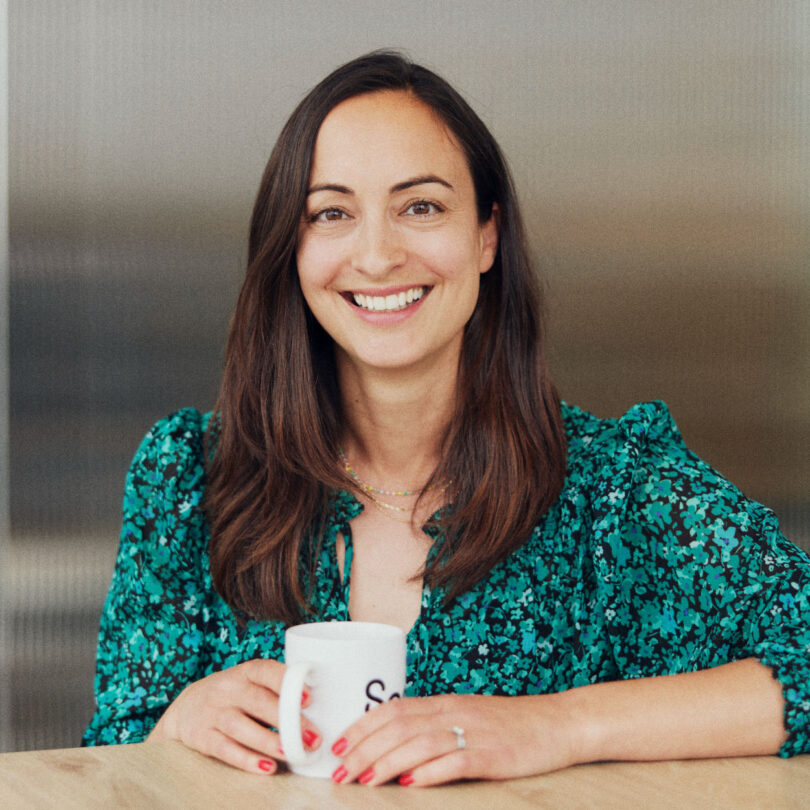
Never miss an episode
Subscribe to the Sound Advice podcast
Subscribe by email and get the Sound Advice podcast delivered to your inbox every month with a ton of related articles, templates and problem solving guides for small businesses so you can put our Sound Advice podcast into practice.
There’s no better way to round off season one of Sound Advice than with two incredibly talented and experienced freelancers.
And they just so happen to be our hosts of the podcast.
We’re saying a brief farewell to the lovely Bex Burn-Callander as she goes on maternity leave. But luckily, she’s handing over the mic to our new host, esteemed business journalist Kate Bassett.
In this episode, these two brilliant businesswomen discuss not only their highlights from this season, but also their own experiences in the freelancing world and how they’ve found the right balance and the right fee.
Here’s what we cover in this season finale:
Saying goodbye to Bex and hello to Kate
Getting into business journalism and entrepreneurship
Taking the plunge into freelance work
Working as a freelancer means an unpredictable workload
Finding the right fee as a freelancer
Top tips if you’re just starting your freelance journey
Finding your gold or glory balance
How to prepare for maternity leave as a freelancer
Putting into your pension when you have a limited company
When is it necessary to become a limited company?
Meeting your accountant at a music festival
Once you go freelance, you never look back
Saying goodbye to Bex and hello to Kate
Bex Burn-Callander:
Today is bittersweet for me. I’m about to waddle off on maternity leave for a few months. And while I’m really excited about my new arrival and the opportunity to spend some time with the family, I’m really going to miss this show.
I’m leaving you in really safe hands, however. Stepping into the breach is a fantastic journalist and podcaster, Kate Bassett, who is similarly obsessed with entrepreneurs and startups.
On today’s episode, we’re going to meet Kate, and together we’re going to bring you a Sound Advice first, a freelancer special.
Well, there are 2.2 million of us in the UK. So, if you want to know what it takes to take the plunge and become a freelancer, what business structures might work for you, hacks for success, don’t go away.
Kate, welcome. So excited to chat to you today and introduce you to our fabulous listeners.
Kate Bassett:
Thanks, Bex. I’m so excited to be here. How are you?
Bex Burn-Callander:
I’m well, I’m well. I’m the size of a planet, so I’m about to go on maternity leave.
And I’m on week 38, so I’m a slow-moving, wide load at the moment. But feeling pretty good despite.
Kate Bassett:
You are blooming.
Bex Burn-Callander:
This is episode 50, which is incredibly exciting because we’ve just told so many amazing stories now and had such a diverse range of guests on the show with all these different lessons to share.
Now, you are going to take over as host for season two.
And I know that a lot is under wraps at the moment, but can you share anything about what’s in store, what you’re excited about, what kind of guests you’re likely to bring on?
Kate Bassett:
Yeah, well I can’t say too much at this stage because it’s all top secret and hush, hush.
But we do have a stellar line-up of brilliant entrepreneurs.
We’re going to throw a few surprises in there, and we’re going to be back with a new theme.
So we’re going to miss you, Bex, but we’ve got lots of exciting things in store.
Bex Burn-Callander:
Well, I’ll be listening, I’ll be there. I’m subscribing, so I’ll get the new episode as soon as they land.
Kate Bassett:
Baby in one hand…
Bex Burn-Callander:
Baby in one arm, phone in the other: classic.
Season one highlights
Bex Burn-Callander:
And I don’t know if you’ve been listening to the show, but are there any particular highlights or guests that we’ve had on that you’ve really enjoyed?
Kate Bassett:
They’ve all been brilliant, and I think they’re all so diverse with different stories to share. And I love how they talk about some of their big challenges and how they’ve overcome adversity.
That’s what always really interests me, how you get over those big hurdles.
What have been your top stories from season one? Who have you loved interviewing?
Bex Burn-Callander:
Oh, it’s really hard to pick a favourite. But similar to you, I love the ridiculous stories where it’s the thing that went wrong and the scramble to fix it, and it’s almost surreal. It’s almost too crazy to be real life.
Like the Teemill guys who only had, I think it was £200 to start their business, and that they blew most of their budget on business cards despite the fact they were starting a digital business and realised they were never going to give a single business card away, and then basically had to hack together their first tee shirt printer from an old Epson.
But those stories are wonderful.
And I loved Solveiga Pakštaitė, who we had on really early on in the show, who got ghosted by her investor and had to beg her parents for her wedding fund to pay her staff. And she talked about sitting under a desk and just weeping.
She can laugh about it now, but I love the stories where you see the realness and just what people have to go through to make it work and for their business to survive.
I find that stuff the most inspiring.
Kate Bassett:
Same here, actually.
And I just always think, sometimes you see these fabulous shiny brands, and you forget about all the hardships and those moments of, as you said, rocking backwards and forwards under a desk that has actually got them to that point.
I remember interviewing Jo Malone. And again, it’s such an amazing brand, now owned by Estée Lauder. But she talked about setting up.
She was dyslexic, she had no qualifications at all. She had to teach herself how to make face creams just to survive. And actually, for the first 10 years of that business, it was just her and her husband running it from a tiny flat.
You definitely forget about those moments when you see her beautiful candles and perfumes on the shelves.
Bex Burn-Callander:
It’s those reminders, I can’t remember who said it, but it takes 10 years to make an overnight success.
I feel like this show, we get that reminder almost every week.
Getting into business journalism and entrepreneurship
Bex Burn-Callander:
And you’ve been a business journalist for many years, but you’ve been focused on entrepreneurs for quite a lot of that.
So tell me how you ended up in this space.
Obviously, we’re passionate about these kinds of stories, these human stories, which must have been the lure, but how did you end up writing about these people?
Kate Bassett:
You know what? I have just always loved magazines and just have devoured content. So actually, I was rummaging around in the attic the other day, and I came across these My Little Pony magazines I had from the mid-eighties.
So I must have been about seven or eight. It was 30p an issue, and I was a subscriber. And I’d get my fortnightly mag, and I just used to love it. And then obviously moved on to mags like Smash Hits. Don’t know if anyone remembers that. Just 17, Cosmopolitan. Just absolutely loved magazines.
So when I was at university studying English literature, I started to do loads of work experience placements at publishing companies, newspapers. And one of the mags I was doing a two-week placement for ended up offering me a job.
So that’s how I got into business journalism.
That was such a big break for me, really. It got my foot in the door. But also the founder of that company and the editor was also a columnist for The Financial Times.
I’d been there about a year, and he came over to me one day, and he said, “Kate, I haven’t got time to write my column for The FT today. It’s due in at 5pm. Do you want to have a go?”
And I looked at him, terrified, thinking, oh my god, I’m 23. There’s no way I can write a column for The Financial Times.
But of course, in my enthusiasm and youthful naivety, I was like, “Yes, of course I can do that.”
So then got it done, handed it in on time. The FT were pleased with it, and I ended up to writing his monthly column for The FT, at 23. He just let me take over it because he was really busy, juggling lots of other balls.
Bex Burn-Callander:
But was that with his byline or with your name on it?
Kate Bassett:
I had my own byline. Actually my maiden name was Pritchard, so I’m sure, if you root around on The FT website, you can find Kate Pritchard. And it was the column called Found It on the Net. And that was when I was 23, so that was a really good foray into business journalism.
From there, I just worked with different mags, focusing on entrepreneurs and also diversity and inclusion. Doing a lot with businesswomen.
So just have interviewed some really amazing people over the years. Most of the Dragons [from Dragons’ Den], for example. In fact, someone I interviewed fairly recently was Sara Davies who set up her business Crafter’s Companion when she was still at university.
I think, by the time she graduated, she was turning over half a million. I love chatting to her. She’s still so enthusiastic and down to earth.
But even she was saying that a few years ago she reached the point where she thought she couldn’t take the business any further; she wasn’t the right person to take it to the next level.
So she brought in this wiser, older executive and handed over the keys to the kingdom but then had to sit on the sidelines while he made all the wrong decisions for the business.
So she said that was the moment she realised she needed to step up, hired a coach, just got that confidence to trust her instincts and know that she was the one to take the business further.
So it’s really interesting, yeah. I love hearing these human stories and chatting to people. So, so excited to take on this podcast.
Bex Burn-Callander:
You should get Sara on the show. I love that story.
Kate Bassett:
Yes, we should. Sara, if you’re listening, we want you on the show.
Bex Burn-Callander:
Give us a call.
Kate Bassett:
Yeah.
Taking the plunge into freelance work
Bex Burn-Callander:
So full disclosure, we met many years ago when we were both in gainful employment at a trade mag. But I want to know how you ended up becoming a freelancer.
And was it a gradual process, or did you do the two feet, take the plunge style, I’ve had enough of being paid on time every month, I’m ready for anxiety and stress?
Kate Bassett:
Well, actually yes, I’ve been working as a business journalist for about 20 years. And about eight years ago probably, I started taking on ad hoc freelance projects on the side. It was a real side hustle alongside employment.
And then at the start of the pandemic, so in 2020, I was made redundant from Haymarket. So, at that point, my side hustle became the main gig. So I’ve been freelancing full time since then.
So yeah, it wasn’t out of choice. I had to be shoved, had to be pushed off the cliff. But to be honest, I really haven’t looked back. I’m loving the freedom of it, the flexibility.
But your story’s quite different because you just went in feet first, didn’t you?
Bex Burn-Callander:
Yes. Yeah, but again, I think I was sort of pushed because I’d been the small business editor at The Telegraph, for I think it was about four or five years. And my workload had just become completely unsustainable.
I didn’t know at the time, but I was basically on the verge of a full breakdown. I think I was writing between 10 and 12,000 words a week because I had pages to fill on Tuesday, Wednesday, Friday and Sunday. And I was writing all the features, all the news stories, doing all the interviews, the reporting, the transcriptions, the story getting, all the morning conferences.
And it was like writing a thesis every week, but it was just unsustainable.
I think I was quite naive in that I never even really thought to ask for help. So I can’t even blame my managers because I should have just said at some point, “This is just not possible. I can’t continue anymore.”
Instead, I was like, “Well, clearly I have to leave.” And I actually was going to start my own small business. I was going to start an import business. My mother is from Croatia, and they make really amazing booze.
I’m not going to tell anyone too much about it because who knows? I might still do it one day.
Kate Bassett:
Watch this space.
Bex Burn-Callander:
Watch this space, exactly.
There’s this amazing kind of alcohol that you get in Croatia that you can’t get anywhere else. And it’s really specialised, and they serve at weddings. And I wanted to import that.
But then a little thing called Brexit happened, this is in 2016, and it was the worst possible time to start an import business from Europe.
So I thought, I’ll just do some freelancing in the meanwhile and wait for things to calm down.
And then just loved it and had loads of different kinds of clients, had loads of variety, figured out my approach to freelancing, what the balance would look like for me in terms of what kind of jobs I would take on, the balance of regular clients versus incoming, opportunistic clients.
Admittedly, the Brexit challenge still hasn’t gone away in 2022, so that other business has been parked.
Kate Bassett:
But could come back. So we need to look out for your Croatian booze.
Bex Burn-Callander:
Although the company that I set up to actually sell the Croatian booze, I ended up becoming a limited company a couple of years ago. And that was lying dormant. And my accountant was like, “Oh let’s just use that.”
So the company name I chose for my Croatian business is now my freelancing company. So I’d have to come up with a completely different name. But never mind.
Kate Bassett:
We can do that. We can have a brainstorming session.
Working as a freelancer means an unpredictable workload
Kate Bassett:
You mentioned that one of the reasons you went freelance was because of your unsustainable workload.
So how are you finding it now? Have you had those moments? Because as a freelancer, it’s really hard to say no to work sometimes, isn’t it? Because you don’t know necessarily what the next month’s going to bring.
So, I’ve certainly found there are real peaks and troughs. There are times when I’m inundated, and I’m literally working every hour of day and night. It’s like full time and a half. And then there are other moments where it’s pretty quiet.
So how have you dealt with that?
Bex Burn-Callander:
Took me three years to find the balance.
I think, for those three years, I was a hundred per cent doing up the feast and famine where you would be working every minute and evenings one month and then the next month you would have a week where you didn’t have anything on.
And that sort of worked for me at the time. I had to find the balance once I had my son, who’s three and a half now, because I couldn’t work evenings anymore. Certainly when he was small, he wasn’t in nursery, so I had to have a really structured workday.
The only way to do that, I think, is I have a lot more regular clients that come back at the same time of year with a similar project. Or I do some ghostwriting for some tech CEOs, for example. I know that I’ll speak to one of those guys every Wednesday at this time.
You just get into a rhythm where you can anticipate when the work is coming in.
And then anything that comes in on top of that, like features and commissions, if I can fit them in, I do.
But I’ve also got much better at saying no and saying, “I want to do a good job, and I can’t commit that amount of time right now. Can I introduce you to another freelancer who might be able to take this on, and then maybe I can help you next time?”
And I think that takes time to learn to say no. I don’t know if you found that as well, that in the beginning you just want to be like, “Yes, yes, I’ll do everything.”
Kate Bassett:
I think you are right though that, when you have to say no because of your workload, actually if you can recommend somebody else, it doesn’t feel so harsh, and you don’t necessarily feel like you’re losing them as a client altogether because you’ve still been helpful.
Finding the right fee as a freelancer
Kate Bassett:
Actually, I know you and I have shared projects before, and we’re part of this network of business journalists who are all freelancing. And we’re really collaborative, and we share stuff, and we recommend each other.
Also, we meet up fairly regularly and discuss how much we should be charging because I think that’s a really tricky thing as a freelancer, to know what your value is.
I read this terrifying stat the other day that female freelancers are paid 19.5% less than men, which is really depressing.
We’re undervaluing ourselves.
So I do think it helps when you can meet up with other freelancers and not feel competitive but actually have these really open and honest conversations about how much you’re worth, how much you should be charging, what your day rate is or your fee per word. I think that’s really helpful.
Bex Burn-Callander:
Yeah. I think you can then encourage one another. When you’ve got our little gang of business journalists around a table, there’ll always be someone like, “No, you should not settle for that fee. You need to make sure that they pay you X or Y.”
Or every year inflation rises, and you should be raising your rates.
And it’s really hard to do that as a freelancer, to have the courage to say, “Look, I’m putting up my prices by 10%, 15%, whatever it is.”
But you need sometimes your community behind you, encouraging you but also telling you that that’s what they’re doing, so that you don’t feel like you are this lone freelancer trying to get a fair wage.
Kate Bassett:
Yeah, definitely.
Top tips if you’re just starting your freelance journey
Bex Burn-Callander:
What are your other freelance hacks then?
What are the things that you have found have worked really well for you, as a journalist, yes, but I suppose more generally as well, for freelancers of all stripes?
Kate Bassett:
I think learning to deal with those peaks and troughs like you said, but always trying to have six months of savings at the ready. I think there’s a quote that you should always plan as if winter is coming.
Especially, I also have two children. There have been times where obviously I’ve been on maternity leave, and you just really need to plan for those things and just make sure you’ve got a pot of backup money as a buffer should things go quiet.
God forbid, if there’s another pandemic, you need to prepare for these things if work’s going to dry up.
I think having that variety of clients, which you touched upon earlier as well, a mix of freelance contracts in place really takes the pressure off.
So I did quite a lot of work for the Financial Times. Now, 20 years later, it’s come full circle. And those all-ongoing contracts. Then alongside those, I take on at hoc freelance projects as well. And just having a really good accountant.
I’m actually really lucky that my dad happens to be a chartered accountant, so I get it as a freebie. But he’s really good in just making sure everything’s really tax-efficient, and I’m set up in the right way. I’m expensing everything that I should be expensing. That’s really helpful as well.
I think, if you don’t have a good accountant, just make sure maybe you get a personal recommendation, find someone who’s really going to give you some good advice.
How about you? What are your hacks?
Bex Burn-Callander:
I think those are all really amazing pieces of advice, and I definitely followed all of those, and that’s been a massive advantage in my career.
The only thing I would probably add is that I think it’s useful as a freelancer to make sure that about 30% or so of your income comes from clients that have pots of money, that are resilient to downturns.
An example would be a friend of mine is a yoga instructor, and it’s a part of your disposable income that it’s quite easy to slash if, say, we’re in a cost of living crisis now, people can just cut down on their yoga classes.
But she’s made sure that she does private sessions for some high net worth’s, and that makes up a portion of her income. And that’s income that’s unlikely to go away. Those people are very rarely affected by downturns.
I do some work, for example, with private equity clients. And actually those kinds of companies are as active if not more active during downturns because they’ve raised their funds months, even a year before, and they’re still looking to support growth.
So it’s been useful to just, whatever sector you’re in, think, where is there likely to be resilience in terms of budget?
Then the golden rule as a freelancer… I can’t remember who told me this, and I wish I could attribute it, but it’s what I’ve lived by, is that you have to do two out of three things to be successful as a freelancer.
You have to be good, you have to be on time, and you have to be nice. You can survive as a freelancer if you’re just two out of those three.
So you could be really nice and on time, and your copy can be a bit rubbish. But because you’re on time when you’re really nice, you’ve given your editor plenty of time to fix it, you’ve been easy to work with, they’ll book you again.
If you’re nice and your work is really good, then you can get away with being late sometimes with copy because they don’t have to do any fixes, and you’ve been nice.
But that’s the golden rule. If you can, try and be all three. And that is the secret to repeat work.
Kate Bassett:
Being nice and being kind is massively underrated; not just as a freelancer, I mean across the boards in business.
I’ve interviewed so many high-profile, high-net worth individuals. The ones that stand out for me are the ones that are kind.
Kind leadership, I think, is really crucial in this day and age.
But yeah, I agree. I think if you’re reliable, you’re nice, actually people are going to remember you. I do try and make sure my copy is perfect. But actually, sometimes good is good enough.
Bex Burn-Callander:
Yeah, exactly. And sometimes it’s more important to your client that they just get the words in. It just depends on the particular project. You learn to read the situation as you grow into your freelance career.
But yeah, being nice. As a freelancer you have to be nicer than everyone else because your client will never understand that they are just one of maybe five, 10, 15 clients that you’re working for. They just expect you to be working for them full time.
You can explain that’s not the case, but they want to feel like they’re the most important person in your professional life. And you’re only as good as your last project.
So if you snap or you’re critical of something or you word something badly, that might be the last time you work for that client.
Kate Bassett:
And actually, I did a short stint with a PR agency. I was head of editorial for about seven or eight months, just before I had our first child.
And just working in the PR industry actually really taught me about being reliable, about getting back to people, ideally within an hour of them emailing you. Just really be responsive.
That goes a long way.
Finding your gold or glory balance
Bex Burn-Callander:
I like your point about having an accountant because I was going to ask you the things that you wish you’d known earlier.
I certainly wish I’d just never bothered doing my own self-assessments for the first couple of years I was freelance. It was good to learn how the whole thing worked and to educate myself a bit about what expenses I could use.
But just the stress of it, I wish that I’d done that earlier.
Is there anything else that you’ve learned has become invaluable for your freelance career that you wish you’d done earlier?
Kate Bassett:
I wish I’d been able to say no to work that wasn’t very lucrative.
Sometimes there are things that are going to look really good on your CV but don’t pay the bills. They can take up a lot of time and actually, it’s not worth you doing it. And it’s hard to say no to those things.
But actually, when I look back, they’ve caused a lot of stress, a lot of sleepless nights, and I’ve been paid pittance.
So yeah, I think learning to say no to those things and finding those more lucrative contracts that almost pay the bills, and then you have the freedom to say yes or no to those other things.
Bex Burn-Callander:
I call it the gold or glory balance.
Because it’s usually the glory where, for me, it will be a TV appearance or something. And you think, it’ll be good for my profile, it’s worth doing. But you can’t let it eat too much into the gold portion of your working day because otherwise the sacrifice is too big.
So I do often have that conversation with myself where something comes in, and I think, oh I’d like to do that.
And then you think, right, is it gold or glory? What am I going to get out of this? What’s my long-term plan, and does it fit? Which sounds very grown up.
Kate Bassett:
It does, doesn’t it? We sound really experienced.
I also think having that network of freelancers who are in a similar field to you really is like gold dust.
I don’t think I could have really survived in this industry without that. Just being able to bounce ideas off each other and go to each other for advice has been really helpful.
How to prepare for maternity leave as a freelancer
Kate Bassett:
I did want to ask you Bex, obviously you’re about to go off on maternity leave. How have you prepared for that as a freelancer? How much time are you going to have off? How are you funding that time off?
Because obviously, you don’t have a company to pay your maternity leave.
Bex Burn-Callander:
It’s pretty terrifying, isn’t it?
For most women, well, every woman that has a family and is a freelancer is going to have to work out how she’s going to pay for her maternity leave.
And the first-time round, when my son Charlie was born, we’d just bought our first flat, and my husband and I had no savings. So, I had two weeks off with Charlie, and then I continued to freelance.
And it was the hardest thing I’ve done in my life. It was the classic baby on one knee, laptop on the other. Vomit down your front but still having to hold a professional interview.
Kate Bassett:
Having had two hours sleep max.
Bex Burn-Callander:
This is it.
I don’t know how people have done it during the pandemic when everyone loved video calls. Because I only got away with it because it was just phone calls, so no one could see the state I was in.
Kate Bassett:
The vomit dripping down your top.
Bex Burn-Callander:
Disgusting. All that breast milk everywhere.
Anyway, I’m not going to gross out the listeners too much. But that was a really hard lesson and one that I didn’t want to repeat with our second.
So luckily, I became a limited company. I think it’s a couple of years now. And one of the benefits… There are downsides, but one of the benefits was that I could work my socks off and create some cash buffers in the business.
And unlike when you’re a sole trader, where you are paying income tax on all your earnings in one go, when you’ve got a business, you can just keep your reserves in the business.
And then I can now pay myself a salary through my maternity leave, so that I don’t have to survive on, I think it’s £155 a week you get from the government, as maternity allowance.
Kate Bassett:
That’s not even going to cover your electricity bill.
Bex Burn-Callander:
Which doesn’t… Exactly. Which won’t cover electricity bills, won’t cover my older son in his nursery. His nursery costs over £1,000 a month.
I understand why so many women end up leaving the workforce because it’s hard to make it work financially, especially if you’ve already got kids. But yeah, that’s been really, really helpful.
And plugging into my network of freelancers, so that all my clients who rely on me know that there’s someone who will take over while I’m gone. I can just really focus on being a mum.
I’m planning to take six months. That’s the longest I’ve not worked since I was a kid, so I don’t know how I’m going to adjust to it. I hope that I love it.
I hope that I don’t go in saying I’ll be calling you up Kate, being, “My brain. It doesn’t work anymore, my brain.”
Kate Bassett:
You’ll soon get sucked into the lifestyle of coffee mornings and toddler groups and mini music.
Bex Burn-Callander:
Yeah, hopefully. And Julie Deane actually, who was on the show recently, she made me laugh, and she gave me a kick up the bum.
She was like, “Contrary to what everyone says, your brain doesn’t immediately atrophy when you’re a mum.”
And I was like, “Yes. Thank you. I needed to hear that.”
Kate Bassett:
And actually, you know what? Maybe that’s the time to start working on your Croatian booze business.
Bex Burn-Callander:
It’s possible.
Kate Bassett:
Because actually, I know Judy said when she started her company it was out of necessity. She needed to pay those school bills, I think.
So often when you have kids, those are when you have those entrepreneurial moments of needing to start a new business.
Putting into your pension when you have a limited company
Bex Burn-Callander:
The other benefit, I think, of having a limited company is that I’m going to keep paying into my pension while I’ve got my maternity leave.
That was one of the things that I wish I’d done earlier as a freelancer, it took me a good three years to even think about paying into a pension.
I think that it’s a real terrifying prospect for a lot of freelancers that they are sleepwalking towards a financial future which is very uncertain.
Because you’re not in an employee pension scheme, and you don’t want to be relying on the state pension because who knows what that’s going to look like when we all start retiring in 30, 40 years?
Kate Bassett:
There are a lot of these perks that suddenly you do lose when you come out of employment. No more pensions, no more sick pay, no more holiday pay.
So as you said, you do need that financial buffer in place. And yeah, make sure you’re putting into a private pension regularly.
Do you have a certain rule about what percentage of your salary you put into a pension?
Bex Burn-Callander:
I put in £500 a month. And then, at the end of my financial year, I look at my earnings. If I can top up with a lump sum, I do, depending on how successful that year has been. And that’s worked for me.
It feels funny to be talking about pensions now because the value of people’s pensions have gone down so much with everything that’s going on politically.
But because I’m not planning to retire anytime soon, it’s still a good investment for me because there’s still plenty of time for them to recover.
Kate Bassett:
Exactly. It’s a long-term investment.
When is it necessary to become a limited company?
Bex Burn-Callander:
I’m a limited company, but you are a sole trader.
What made you decide to stay sole trader? Did you think about becoming a company, or did that not make sense?
Kate Bassett:
Not yet. I think, again, for tax efficiency I’m still a sole trader because I’m part time, so it just makes sense at the moment.
I think maybe when the kids are a bit older and I go full time, I would, at that point, set up a company. But for now it doesn’t really make sense.
But again, I think it’s about getting that advice from your accountant on what’s the most tax-efficient thing to do.
Bex Burn-Callander:
And there’s a threshold, I think.
Once you start earning more than £85,000 you have to be registered for VAT [in the UK], and then you have to be a limited company.
So you reach a point where it’s obligatory that you become a company. Your accountant can tell you. If you’ve got a good accountant, they’ll be able to tell you if your turnover is moving in that direction and that you need to prepare by registering for VAT at that point.
That’s why they’re so useful.
Meeting your accountant at a music festival
Kate Bassett:
How did you find your accountant?
Bex Burn-Callander:
This is an unusual story. Probably won’t be repeated by many listeners. I met my accountant at a music festival. And this was before he was an accountant.
Kate Bassett:
Where all good accountants hang out.
Bex Burn-Callander:
He was actually a barman at a backstage bar at a music festival.
And this is back in my vodka Red Bull phase. He poured the biggest vodka Red Bulls on the whole site, so I got to know him really well.
Kate Bassett:
That’s how he earned your trust.
Bex Burn-Callander:
We became friends. And then he was, I don’t know how soon after that… This is 10 years ago. I’m not sure how soon after that he retrained as an accountant.
But I do think that having the solid basis of friendship there meant that I trusted him immediately and also knew that if I didn’t understand something or if I was worried about anything, I could email him, and he would come back to me really quickly.
He also didn’t charge me for queries. I’d heard so many horror stories about accountants who would charge you £50 for a two-minute phone call or a quick email.
And because we had that background of being pals and knowing each other outside of our professional lives, that trust was really important.
But I have to say, when you are thinking about becoming a limited company, don’t forget that your accountancy fees are going to go up astronomically. I don’t think I’d really thought about that.
When I became a limited company, I went from paying £250 for my end of year accounts to over £1,000 because obviously it’s all the Companies House filings, it’s a lot more arduous for your accountant. Plus, I then had to pay a payroll software company, which is an extra £200.
So yeah, I think you have to be making enough money in your company to stomach the additional costs if you’re going to make that move.
Kate Bassett:
There’s the higher fees and the bureaucracy attached to it.
But then I think, on the plus side, there’s a reputational gain, in some ways, of having a limited company.
It gives you that image of gravitas and size.
Bex Burn-Callander:
Because some big brands don’t want to work with sole traders. They want someone who has a limited company whose VAT registered, who has all the transparency that comes with being a limited company.
Often that means you are on software too. We’re all going to have to be on software soon.
But if you are a limited company, you’ll usually have a software system, so you’ll invoice at the same time every month. There’ll be a lot more stability and consistency to the relationship.
Once you go freelance, you never look back
Kate Bassett:
Having been through all this, Bex, do you think you would ever go back to employment, or are you a freelancer for life now?
Bex Burn-Callander:
Oh God, I don’t know about you. I just don’t think I could ever go back. I can’t imagine it.
Kate Bassett:
So many entrepreneurs say this, that once they’ve run their own company and been their own boss, they’re almost unemployable. And that’s how I feel now.
I never expected to go into business journalism. I was always thinking I was going to write for The Sunday Times Magazine or Style or Cosmo, definitely lifestyle features.
But just because I ended up getting a job out of some work experience at a business magazine, that’s how I ended up in this field. But it’s so interesting.
As you said, you’re just learning new things and sucking up information all the time. Actually, particularly entrepreneurs, these are the people that are keeping the economy ticking and contributing so much to this country.
So, I think we really want to celebrate their stories and shine a light not just on the successes but on some of the real challenges that they’ve been through and how they’ve overcome adversity, so that other people can find it easier when they come to set up their businesses.
Bex Burn-Callander:
Oh, Kate, I can’t wait to hear all of your episodes of this show. That sounds right up my street in terms of approach. I’m going to be tuning in every two weeks.
And thank you so much for stepping into the breach. And best of luck with it.
Kate Bassett:
Thank you, Bex. We’ll miss you, but thanks for handing over your mic.
Inspired by this small business story?
Wherever you’re listening or watching, subscribe to Sound Advice on Apple iTunes here.
We are also on Spotify and anywhere else you get your podcasts.
Join our community to share your insights and stories on Twitter @SageIreland using the hashtag #SoundAdvicePodcast, on Instagram @SageOfficial or in the comments below!
Want to know more about our new host, Kate Bassett?
You can check out Kate on her website.
Small business toolkit
Get your free guide, business plan template and cash flow forecast template to help you manage your business and achieve your goals.
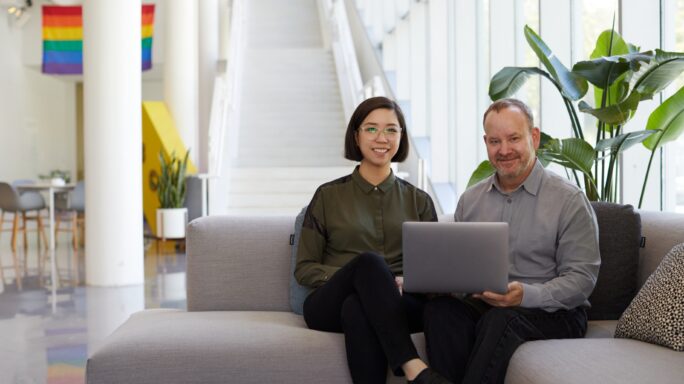
Never miss an episode
Subscribe by email and get Sound Advice delivered to your inbox every month with the Sage Advice newsletter with a ton of related articles, templates and problem-solving guides for small businesses so you can put our sound advice into practice.
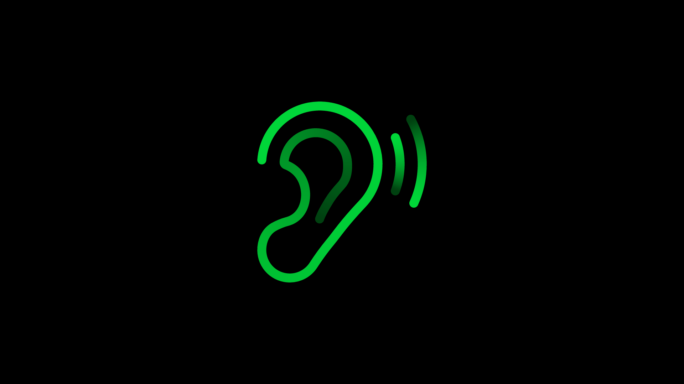





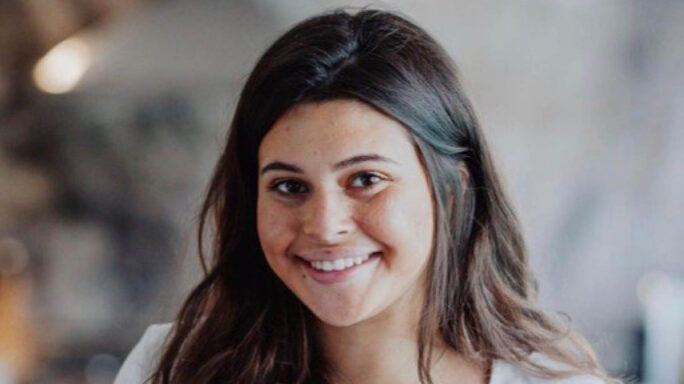

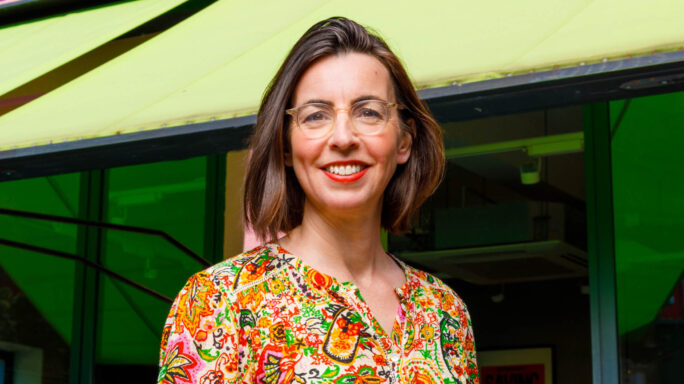

Ask the author a question or share your advice